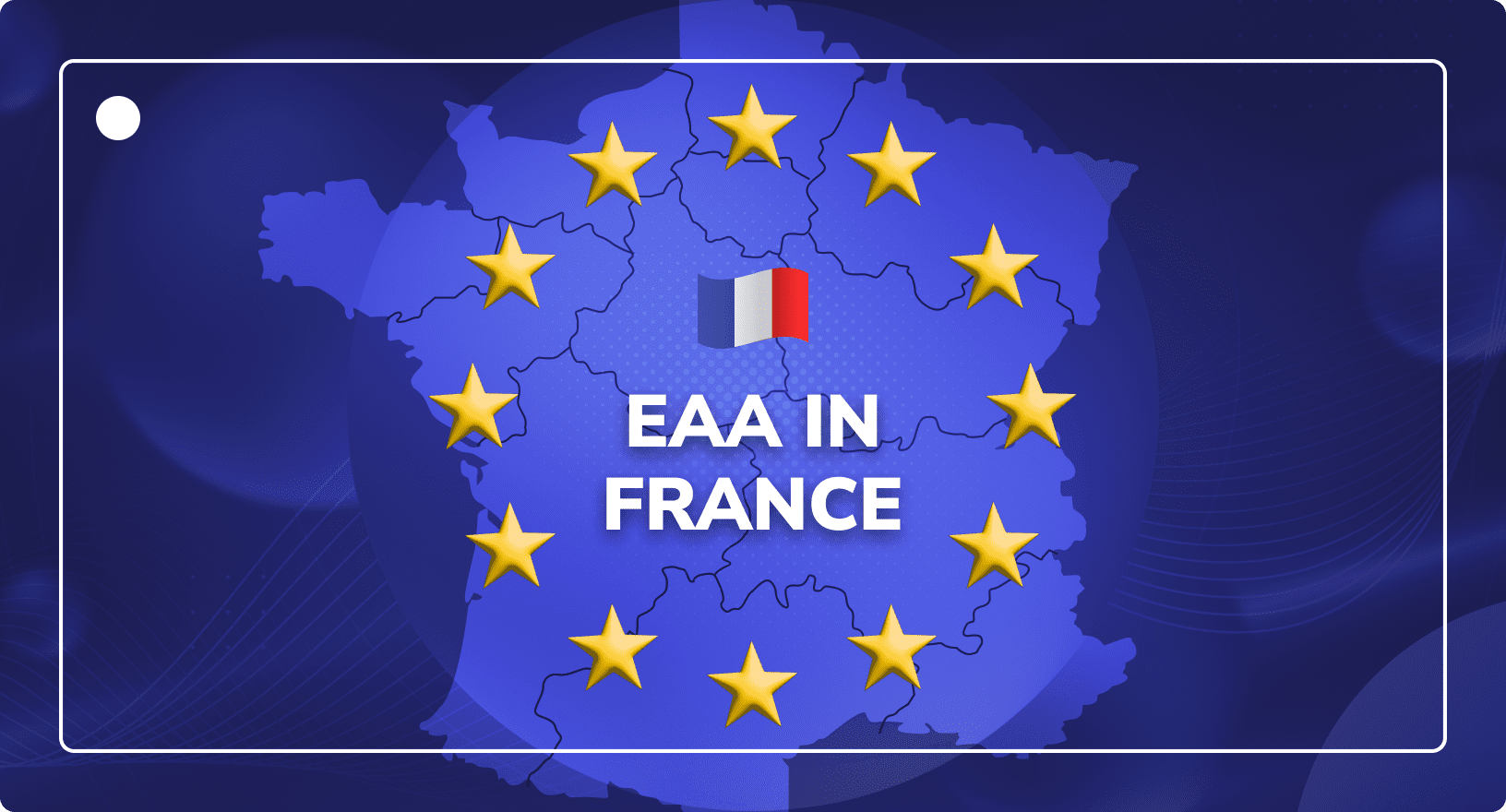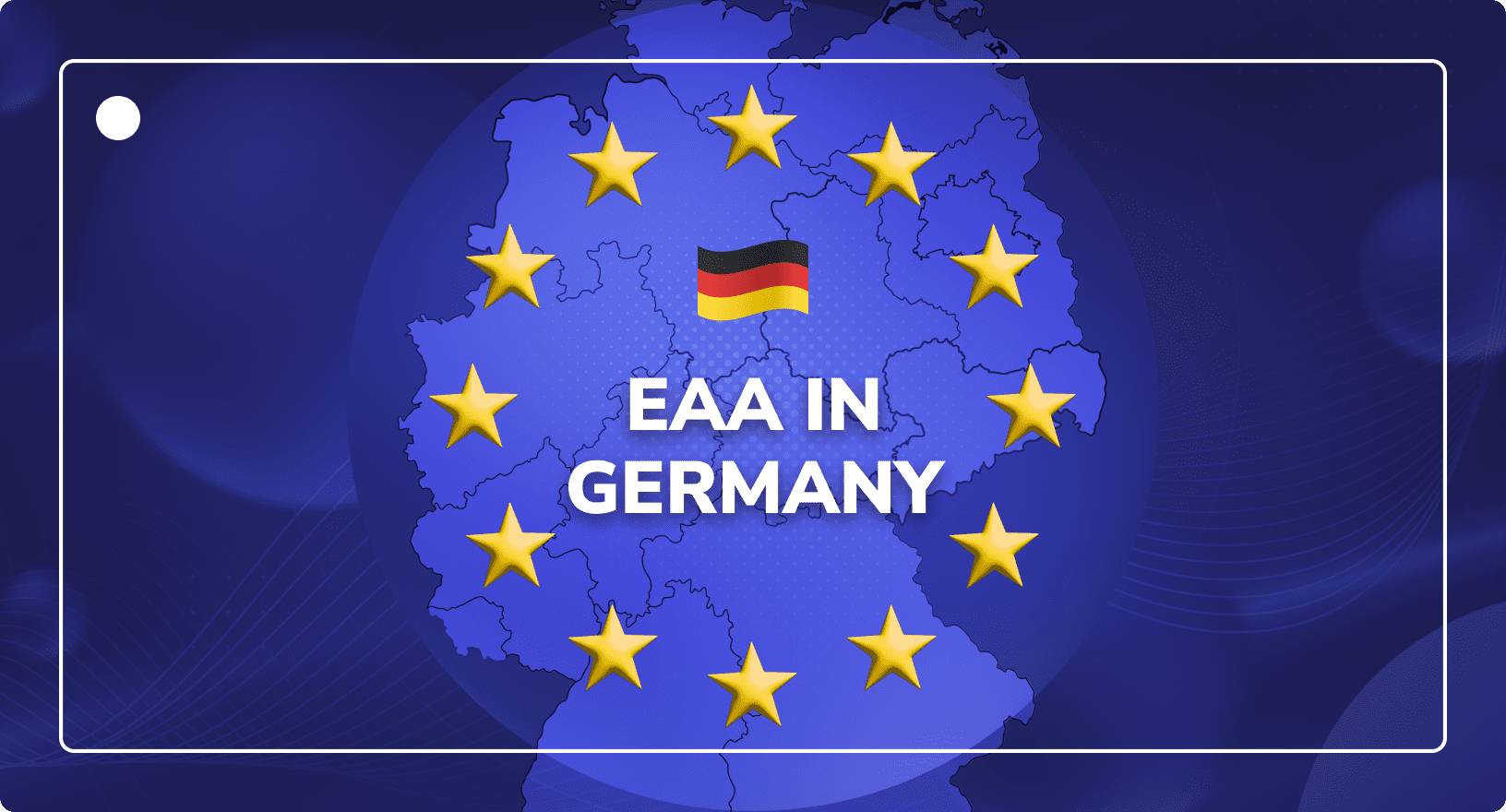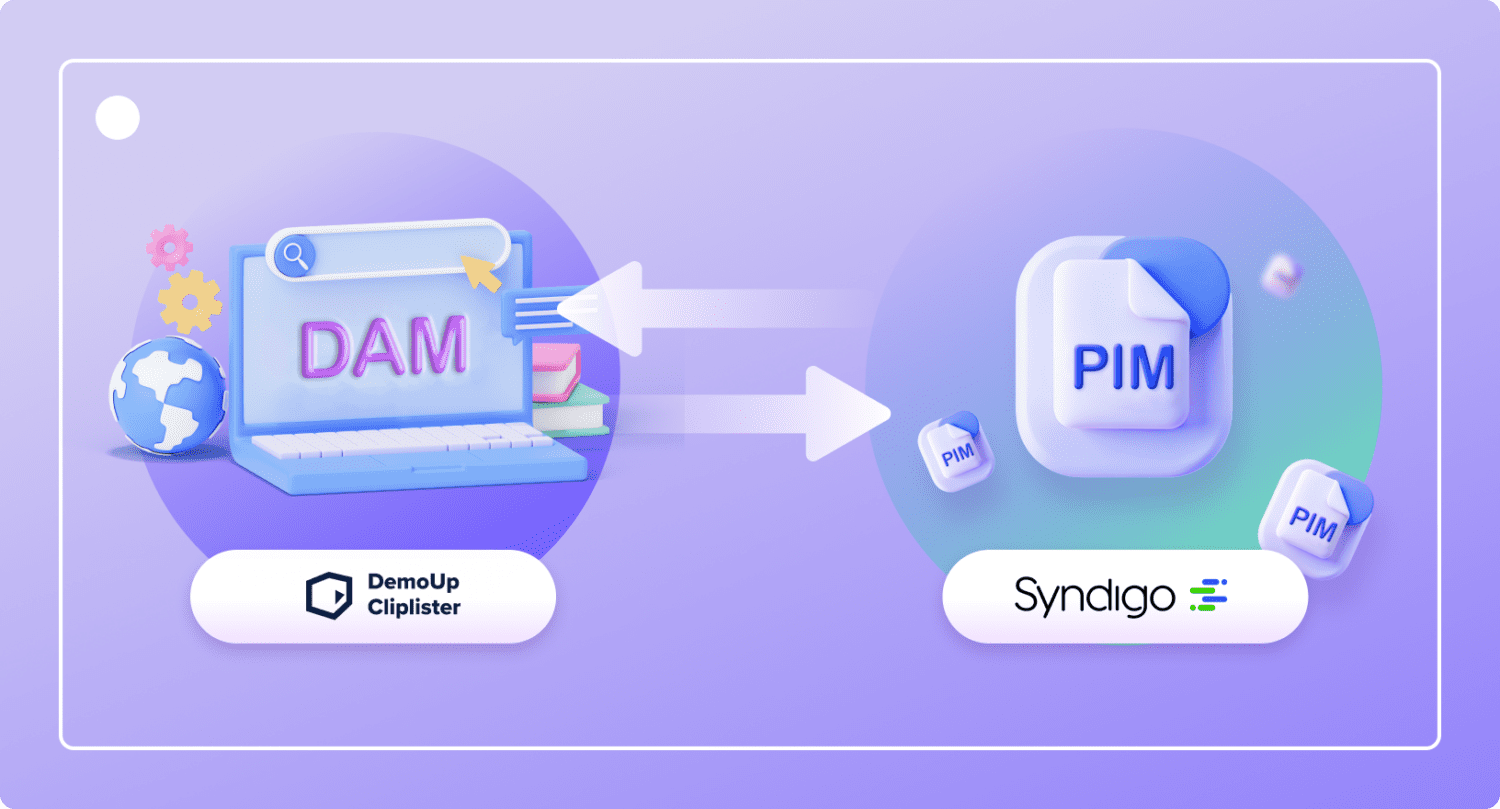European Accessibility Act in France: What Decree 2023-931 Means for You
Uncategorized
Updated on April 14, 2025
Roughly 12 million people in France—around 20% of the population—live with some form of disability. For e-commerce companies, this represents a market valued at an estimated €108 billion. With the introduction of the European Accessibility Act in France and the EU as a whole, providing accessible content is now a legal requirement.
In France, Decree No. 2023-931 outlines how companies must legally align with the EAA and ensure equal access for all. And, of course, beyond legal compliance, accessibility is a gateway to serving a massive, often underserved audience.
In this article, we’ll explain exactly what France’s new accessibility law (Decree No. 2023-931) means for your business. We’ll show you what steps to take, how to stay compliant, and why it matters. But it’s important to remember that accessibility is not just about rules; it’s about maximising your total addressable market.
What is the European Accessibility Act?
The EAA is a directive aimed at a more inclusive future for people with disabilities in the European Union. The European Parliament adopted the EAA on 27 March 2019. The directive was then published in the Official Journal of the European Union on 7 June 2019 as Directive (EU) 2019/882.
Member states, including France, were required to transpose the directive into national law by June 28, 2022, and enforcement begins June 28, 2025 for most digital products and services.
Sectors affected
The EAA refers to multiple sectors for companies active in EU countries, including:
- E-Commerce
- Banking
- Public transport and public sector organisations
- Digital Services/online public communication services
- Hardware
Key EU-wide compliance deadlines and enforcement mechanisms
The deadlines for the EAA vary from industry to industry and product to product. For consumer-facing, non-governmental services and digital platforms, this date is June 28, 2025. Mechanisms for enforcing compliance exist, and penalties may be imposed for non-compliant parties.
How Will the EAA Impact E-Commerce Services in France?
The EAA provides a framework for accessible e-commerce services, and France adopted this directive with Decree No. 2023-931. In short, online stores, mobile applications, and payment platforms must comply with digital accessibility standards so disabled people can access and use these online services. Key areas of impact include:
Website and Mobile App Accessibility (WCAG 2.1 AA compliance)
All consumer-facing websites and apps must abide by the Web Content Accessibility Guidelines (WCAG) 2.1 AA standards, whereby the content has to be perceivable, operable, understandable, and robust.
For the complete list of WCAG guidelines, visit the World Wide Web Consortium (W3C) website.
Accessible E-Commerce Checkout Processes and Digital Payments
Checkout and digital payment systems must be accessible. They include alternate means of payment, instructions, and accessible forms.
Accessible Customer Support Options (Live Chat, Phone and Text Alternatives)
Customer support options must provide accessibility features. This includes electronic communications such as live chat, phone, and text.
EAA in France – Legislation & Laws

France is implementing accessibility measures for the EAA through Decree No. 2023-931, which is supported by the Référentiel Général d’Accessibilité pour les Administrations (RGAA)—the country’s official accessibility framework.
Together, these texts define specific digital accessibility obligations for organisations providing services in France across both public and private sectors. They serve as the foundation for how accessibility rules interpreted and enforced within the country.
Compliance is overseen by designated national authorities, who are responsible for monitoring, enforcing and penalising non-compliance across industries.
What Are the Requirements for EAA Compliance in France?
Here are the requirements for accessibility in France:
Digital Accessibility Compliance (Websites & Apps)
Websites and apps must comply with EAA standards that contain characteristics such as:
- Alternative text for images
- Subtitles, transcripts, and descriptions for videos
- Alternative text descriptions and accessible players for 3D models
- PDFs optimised for screen readers and other assistive technology
E-Commerce and Digital Transactions
Checkout flows and self-service portals must provide clear instructions, accessible forms and alternative payment methods. Companies should also include an accessibility statement so users know exactly what is covered.
Customer Service
Provide accessible customer service options, such as text, voice, and sign language, so that people with disabilities can receive customer service.
Financial and Transport Sectors
Accessibility standards and legal requirements have been specified for these sectors, and they must comply with the EAA in France.
Who Needs to Comply with French Accessibility Laws?
Here is a summary of the industries affected by the European Accessibility Act in France:
Large Enterprises vs. SMEs
The EAA in France applies to both large enterprises and SMEs; however, the provisions vary between member states concerning exemptions granted to micro-enterprises.
Public vs private sectors
The obligatory aspect of the EAA applies to both public and private sector entities in France.
Industries affected
The EAA affects e-commerce stores and online services, physical and digital retailers, banks and financial institutions, transport companies, public and private entities, and public services and they must comply with the accessibility law requirements.
EAA Comparison Guide: France vs Other European Countries
Here is a comparison between France and other European countries regarding the EAA.
France vs EU: Accessibility Rules
| Country | Legislation Name | Compliance Deadline | Penalties | Unique Aspects |
|---|---|---|---|---|
| France | Decree No. 2023-931 | June 28, 2025 | Fines up to €250,000 per violation and public disclosure. | Strict enforcement measures, high fines. |
| Germany | Barrierefreiheitsstärkungsgesetz (BFSG) | June 28, 2025 | Fines up to €500,000 per violation or suspension of services. | Covers both physical & digital sectors. |
| Italy | Stanca Act | June 28, 2025 | Fines up to €150,000 per violation with mandatory corrective measures. | Stricter public sector requirements. |
| Spain | Ley de Accesibilidad Universal (UNE 139803) | June 28, 2025 | Fines up to €300,000 per violation with mandatory corrective measures. | Requires accessibility audits. |
| Sweden | Lag om tillgänglighet till digital offentlig service (DOS-Lagen) | June 28, 2025 | Fines up to €200,000 per violation with ongoing mandated audits. | Applies broadly to private and public sectors. |
Consequences of Not Complying with France’s Accessibility Laws (Decree No. 2023-931)
Failing to meet France’s accessibility requirements (Decree No. 2023-931 under the European Accessibility Act) has serious legal, financial, and reputational consequences.
Legal Consequences
Companies that don’t comply can face:
- Fines and Penalties: Authorities can impose fines based on the severity and duration of the violation.
- Legal Actions: Individuals and advocacy groups can bring lawsuits, resulting in further fines and potential settlements.
Financial Consequences
Non-compliance can also mean significant financial costs, including:
- Legal Expenses: Lawsuits are expensive, involving lawyer fees, court costs, and possible compensation payments.
- Lost Sales: Customers with disabilities may abandon inaccessible websites or apps, reducing your revenue.
- Compliance vs Legal Costs: Investing proactively in accessibility is much cheaper than paying fines or dealing with litigation.
Example:
In 2008, Target Corporation settled an accessibility lawsuit for $6 million because its online and physical stores were not fully accessible, underscoring the costly nature of non-compliance.
Reputational Consequences
Ignoring accessibility can damage your company’s reputation, causing:
- Negative Publicity: Bad press can harm your brand’s image significantly.
- Customer Frustration: Customers who struggle with accessibility will likely share their negative experiences publicly.
- Lost Market Share: By excluding people with disabilities, you also alienate their families, friends, and allies—losing potential business.
How to Comply with France’s EAA (Decree No. 2023-931)
Here are clear steps your business can take to meet France’s accessibility requirements:
1. Run an Accessibility Audit
- Evaluate: Use experts or automated tools to assess your website, apps, and digital products.
- Find Problems: Identify accessibility barriers preventing usage by people with disabilities.
- Prioritise: Address critical accessibility issues first.
2. Meet WCAG 2.1 Level AA Standards
The framework officially requires you to meet WCAG 2.1 Level AA standards.
- Keyboard Navigation: Everything must work without a mouse.
- Screen Readers: Content must be understandable when accessed by a screen reader.
- Alternative Text: Add clear text descriptions to images.
- Captions and Transcripts: Provide captions for videos and transcripts for audio content.
- Colour Contrast: Ensure text contrasts sufficiently with the background.
- Plain Language: Use clear, simple language.
3. Train Your Teams
Ensure everyone understands accessibility standards:
- Developers and Designers: Train them on accessibility best practices and WCAG standards.
- Content Creators: Teach them to write clear, accessible content, including alternative text.
- Customer Support: Train your support staff to assist customers with disabilities effectively.
4. Get Help from Accessibility Experts
- Accessibility Consultants: Hire experts to guide your compliance efforts.
- Regular Third-Party Audits: Periodically verify compliance through independent audits.
5. Long-Term Accessibility Management
Accessibility isn’t a one-time job—it requires ongoing work:
- Regular Testing: Continuously test your digital content for accessibility.
- Stay Updated: Follow developments in accessibility laws and standards.
- Continuous Improvement: Constantly enhance accessibility based on user feedback and updated guidelines.
What’s Next? Accessibility in France After 2025
Accessibility enforcement in France will likely expand beyond current sectors (public administration, transportation, e-commerce) into hospitality, entertainment, education, and healthcare.
Future tech, especially AI and automation, will also change accessibility. AI tools can help automate testing and improve personalised experiences. But they must be implemented responsibly and inclusively.
Companies embracing inclusive design won’t just avoid penalties—they’ll attract a wider audience, gain loyalty, and increase revenue by genuinely serving every user.
Learn how you can future-proof against changes in accessibility regulations.
Simplify E-Commerce Accessibility with DemoUp Cliplister
DemoUp Cliplister streamlines how you manage digital assets and helps your e-commerce content comply with accessibility laws by:
- Scanning for Compliance: Automatically identify issues in images, videos, 3D models, and PDFs.
- Generating Metadata: Automatically create missing descriptions and data required for compliance.
- Ensuring Retailer Approval: Guarantee your content meets requirements for broader reach.
- Providing Accessible Media Players: Deliver fully EAA-compliant media players to ensure accessible media for all users utilising assistive technologies.
DemoUp Cliplister helps e-commerce companies ensure all e-commerce audio visual media services are provided in an accessible format. This helps all brands and retailers meet digital accessibility standards easily, enable users with disabilities to buy from you, and add to your bottom line.
For more, visit our accessibility page.
Wrapping Up
Implementing the European Accessibility Act (EAA) in France through Decree No. 2023-931 marks a significant step toward an inclusive future. French law now mandates robust digital accessibility compliance across numerous sectors, including e-commerce platforms, mobile apps, digital books, and audio-visual media services.
Organisations, both public sector organizations and private entities, must clearly understand and interpret accessibility rules laid down by the European Union. Complying with these accessibility obligations is not optional; it’s legally required to prevent potential legal penalties associated with non-compliance.
Meeting the Web Content Accessibility Guidelines (WCAG guidelines) established by the World Wide Web Consortium ensures that digital content and online services are usable by all, including screen reader users and individuals with visual impairments. Companies must actively remove accessibility barriers by regularly performing accessibility audits and consistently implementing technical standards and best-practice accessibility measures.
In practice, this means creating content in an accessible format, improving user experience across all digital platforms, and ensuring compatibility with assistive technologies. Clear and accessible online public communication services, such as electronic communications and online documents, further support equal access and encourage positive user engagement.
Organisations directly concerned must coordinate closely with public authorities, advocacy groups, and bodies like France’s Inter-Ministerial Steering Committee, the authority responsible for overseeing accessibility law enforcement. This proactive approach not only ensures organisations remain fully compliant but also boosts brand reputation, increases annual turnover, and demonstrates genuine support for the disability community.
Ultimately, the main objective of the European Accessibility Act in France is not just regulatory compliance—it’s to build a fully accessible, inclusive society for everyone.
FAQs on the EAA in France and Decree No. 2023-931
Below are clear answers to common questions businesses have about complying with France’s digital accessibility requirements under the EAA:
Decree No. 2023-931 is the French law implementing the European Accessibility Act (EAA). It requires all French e-commerce platforms and websites to ensure digital content is accessible for users with disabilities.
Non-compliance can result in financial penalties, legal actions, mandatory corrective actions, and reputational harm. Fines depend on the violation’s severity and duration.
Key requirements include alternative text for images, captions and transcripts for videos, full keyboard accessibility, clear and consistent layouts, readable fonts and colours, and compatibility with assistive technologies.
France had to introduce national laws (Decree No. 2023-931) by June 2022. Compliance for existing websites, apps, and digital content is required by June 28, 2025.
The decree sets specific technical standards and legal requirements for accessibility. It also defines how compliance is monitored, enforced, and penalised.
Better Content. More Sales.

Fill out the form to discover our end-to-end eCommerce content solutions for brands & shops



